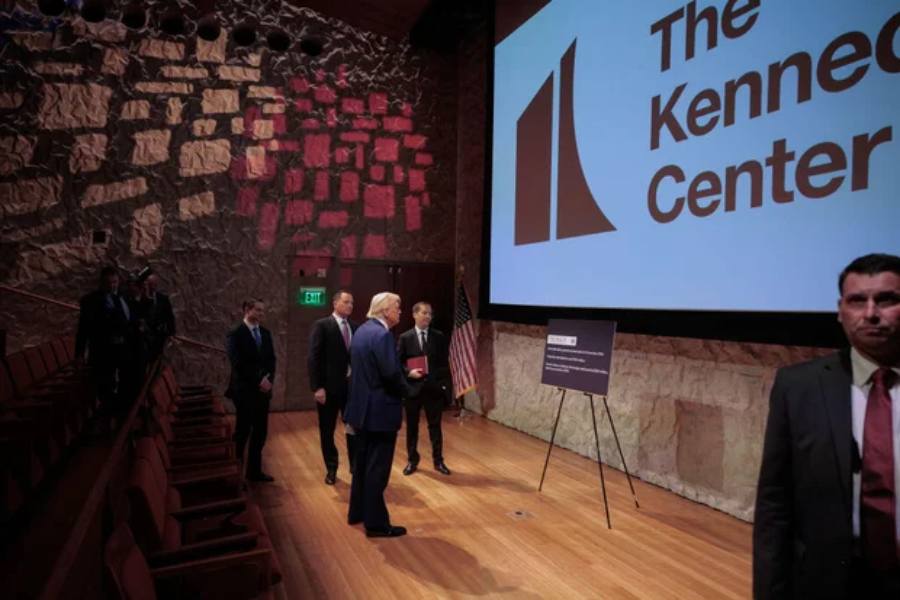The Kennedy Center, one of America’s premier cultural institutions, has canceled a weeklong series of events celebrating LGBTQ+ rights that had been planned for this summer’s World Pride festival in Washington, D.C. The decision, announced quietly and without public explanation, follows a sweeping leadership overhaul at the Center and has sparked widespread disappointment among organizers, artists, and the broader LGBTQ+ community.
The canceled series, titled Tapestry of Pride, was scheduled to run from June 5 to 8 and would have featured concerts, storytelling events, and exhibitions, including parts of the AIDS Memorial Quilt. After months of planning, many artists and producers learned that their events were either canceled or abruptly relocated to other venues. Despite the cancellations, the Kennedy Center’s website still lists a generic description of the Tapestry of Pride event with no specific event details or ticket information. Requests for comment from the Kennedy Center have gone unanswered.
The timing of the cancellations coincides with major internal changes at the Kennedy Center. In early February, President Trump dismissed the Center’s president and chairman, replacing them with loyalists who swiftly elected him chairman of the board. In public statements and social media posts, Trump expressed a desire to significantly alter the Center’s programming focus. These leadership changes caused immediate disruptions, with numerous artists reporting a sudden cessation of communications and canceled contracts without formal explanations.
One of those affected was Michael Roest, founder and director of the International Pride Orchestra. After extensive coordination over months, Roest was finalizing contract details for a June 5 performance when, on February 12, he received a single-sentence email from a Kennedy Center staffer stating, “We are no longer able to advance your contract at this time.” Roest described the shift as jarring, saying that the Center had gone from enthusiastic to completely non-responsive overnight. Despite the setback, he successfully moved the International Pride Orchestra performance to the Strathmore Theater in Bethesda, Maryland.
The cancellation fallout has led to larger consequences. Capital Pride Alliance, the organization coordinating World Pride events in Washington, D.C., officially disassociated itself from the Kennedy Center in the wake of the move. June Crenshaw, the Alliance’s deputy director, noted that while the LGBTQ+ community is resilient and has found alternative venues for some events, the need to reroute plans is deeply disappointing. Some displaced events, including a drag storytime and a display of the AIDS Memorial Quilt, will now be hosted at the World Pride Welcome Center in D.C.’s Chinatown.
Other artists, such as veteran arts journalist and event organizer Monica Alford, shared a similar sense of loss. Alford, who organized the Kennedy Center’s first drag brunch in 2024 and considered the institution a safe and welcoming space, mourned the abrupt end to a valued partnership. Her planned family-friendly World Pride event was among those quietly canceled after the leadership change.
The cancellations are particularly significant given the political backdrop. Trump administration policies on LGBTQ+ rights, especially concerning transgender protections and drag performances, have already sparked national controversy. Now, with Trump at the helm of one of the country’s flagship cultural centers, concerns about inclusivity and censorship are deepening among artists and advocates.
World Pride, which runs from May 17 to June 8 across the capital, is expected to attract tens of thousands of visitors. However, tensions between the community’s enthusiasm and the political environment loom large. Artists like Roest emphasize that the D.C. community remains committed to hosting a vibrant World Pride, even if key institutions have pulled back their support.
Many LGBTQ+ groups and performers have made it clear that they will not consider returning to the Kennedy Center without a public and unequivocal reaffirmation of inclusivity from its current leadership. Until then, the institution, once viewed as a symbol of cultural celebration for all communities, faces mounting scrutiny and diminished trust.
